UB Celebrates: 35th Anniversary of Sade’s ‘Stronger Than Pride’
Sade has Enjoyed Success Internationally and Stateside for Over 40 Years.
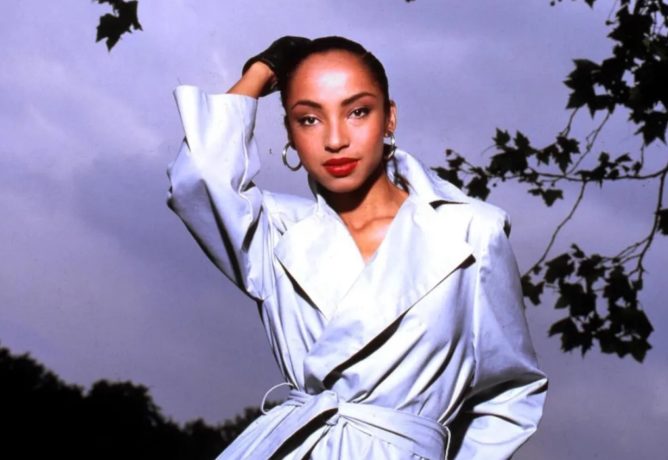
“Stronger Than Pride” is the third studio album by Sade, released in the United States 35 Years ago today, on May 10th, 1988.
The album was the first to be produced by Sade Adu, and replicated the tremendous success of Sade’s two previous albums, selling millions of copies worldwide and going triple platinum in the US.
The album peaked at #3 on the R&B charts, and #7 on the Billboard 200 charts, plus it landed at #17 on the jazz charts. The album sold over 3 million copies.

The singles taken from the album include “Love Is Stronger Than Pride,” and “Paradise” is Sade‘s most successful track on the US Billboard Hot R&B/Hip-Hop Songs chart, peaking at #1 for a week. The single also reached #16 on the Billboard Hot 100 and #21 on the Billboard Dance Club Songs chart.
“Nothing Can Come Between Us,” was released as the album’s third single, reaching #3 on the Billboard’s R&B chart, while “Turn My Back On You,” peaked at #12 on Billboard’s R&B chart, staying on the chart for 14 weeks in 1988.
Known for their one of a kind timeless sound, Sade has enjoyed phenomenal success both internationally and stateside throughout the span of their 40 year career.
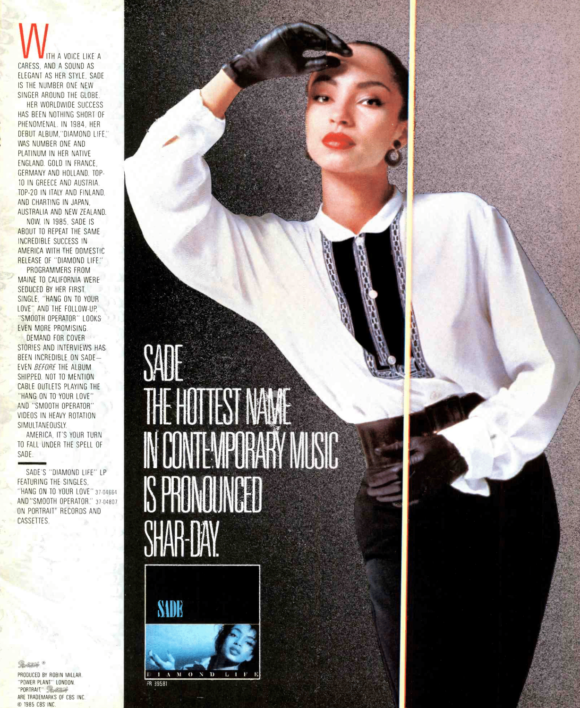
Since the release of their debut album, “Diamond Life” in 1984 the band has seen all six of their studio albums land in the Top 10 on Billboard’s Top 200 Album Chart selling a total of more than 50 million albums worldwide. They’ve been nominated for American Music Awards, MTV Video Music Awards and have won four Grammy Awards – first in 1986 for Best New Artist, then in 1994 for Best R&B Performance By A Duo Or Group for “No Ordinary Love”, again in 2002 for Best Pop Vocal Album with “Lovers Rock” and in 2011 for Best R&B Performance By A Duo Or Group for “Soldier Of Love.”
With the release in 1984 of her debut “Diamond Life“, Sade was speaking to a global audience. Featuring hit singles “Your Love Is King”, “Smooth Operator” and “Hang On To Your Love”, the album spent 98 weeks on the UK charts and 81 weeks on the Billboard charts. Sade received a BPI award for Best Album and a Grammy for Best New Artist. After “Diamond Life” came 1985’s “Promise”, the rich, evocative second album that yielded hits such as “Is It A Crime” and “The Sweetest Taboo”, which has become one of the most played songs in radio history. Like it’s predecessor, this too was an international multi-platinum success.

Three years later, she reconvened the group to record “Stronger Than Pride,” the 1988 hit album which produced memorable singles like “Paradise”, “Love Is Stronger Than Pride” and “Nothing Can Come Between Us.”
I was more fascinated by the audience than by anything that was going on on the stage. They’d attracted kids, mothers with children, old people, white, black. I was really moved. That’s the audience I’ve always aimed for!”
In the album’s wake came a pan-continental tour across Europe, Australia and Japan that included Sade‘s first full-scale arena tour of America. Throughout their history, the group have always attracted a diverse, multi-racial audience who are drawn by the band’s open-minded approach to music.
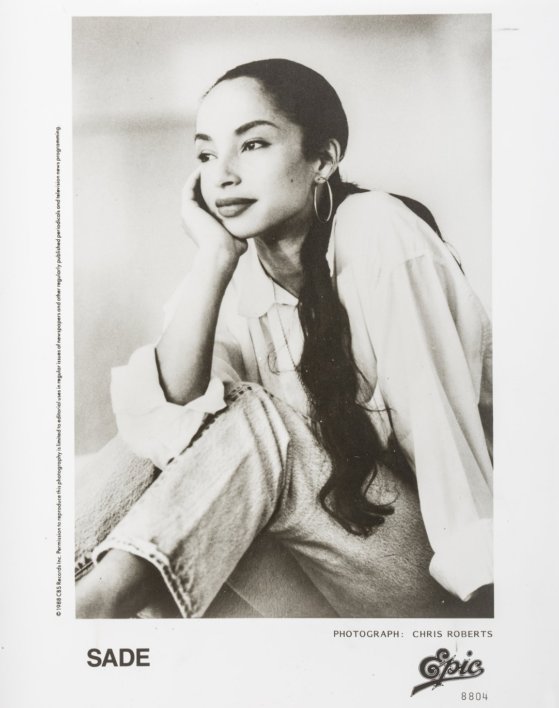
Helen Folasade Adu was born in Ibadan, Nigeria. Her father was Nigerian, a university teacher of economics; her mother Anne was an English nurse. The couple met in London while he was studying at the LSE and moved to Nigeria shortly after getting married. When their daughter was born, nobody locally was prepared to call her by her English name, and a shortened version of Folasade stuck.
Then, when she was four, her parents separated, and her mother brought Sade and her elder brother Banji back to England, where they initially lived with their grandparents just outside Colchester, Essex.

She listened to American soul music, particularly the wave led in the 1970’s by artists such as Curtis Mayfield, Donny Hathaway, and Bill Withers. As a teenager, she saw the Jackson 5 at the Rainbow theatre in Finsbury Park, where she worked behind the bar at weekends. “I was more fascinated by the audience than by anything that was going on on the stage. They’d attracted kids, mothers with children, old people, white, black. I was really moved. That’s the audience I’ve always aimed for,” Sade once stated.
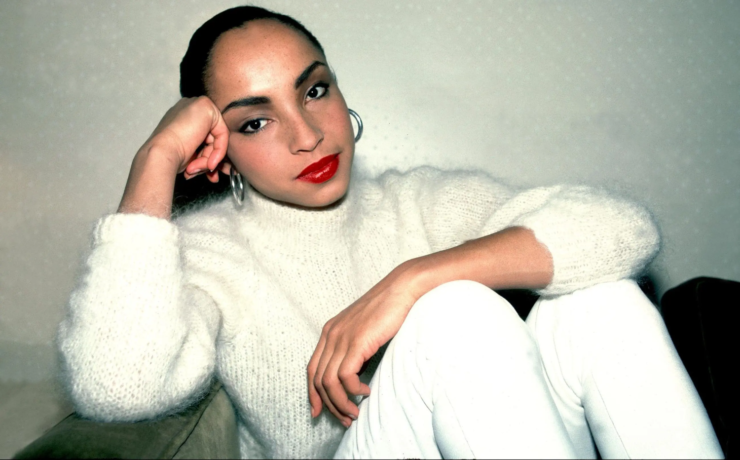
Music was not her first choice as a career. She studied fashion at St Martin’s School Of Art and only began singing after two old school friends with a fledgling group approached her to help them out with the vocals.
Sade served a long apprenticeship on the road with Pride. For three years, from 1981, she and the other seven members of the band toured the UK, often with her driving. Pride‘s shows featured a segment in which Sade fronted a quartet that played quieter, jazzier numbers. One of these, a song called “Smooth Operator,” which Sade had co-written herself, attracted the attention of record company talent scouts. Soon, everybody wanted to sign her, but not the rest of Pride.
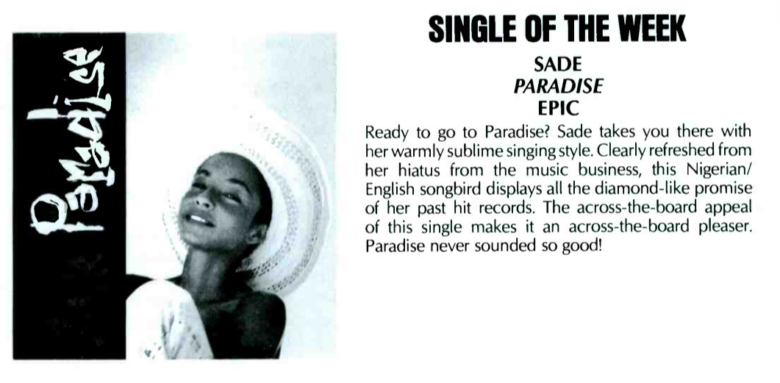
Obstinately loyal to her friends in the group, Sade refused to depart. 18 months later she relented and signed to Epic records – on condition that she took with her the three band mates who still comprise the entity known as Sade: saxophonist Stuart Matthewman, keyboard player Andrew Hale, and bassist Paul Denman.
Sade have created dance floor classics, songs for film soundtracks, radio favorites and late night love anthems, at the same time refusing to be classified simply as a pop group, an R&B act, a soul band or anything else as one-dimensional. Instead, like the multi-cultural London streets the group hails from, their music has thrived by embracing diversity as a guiding principle.
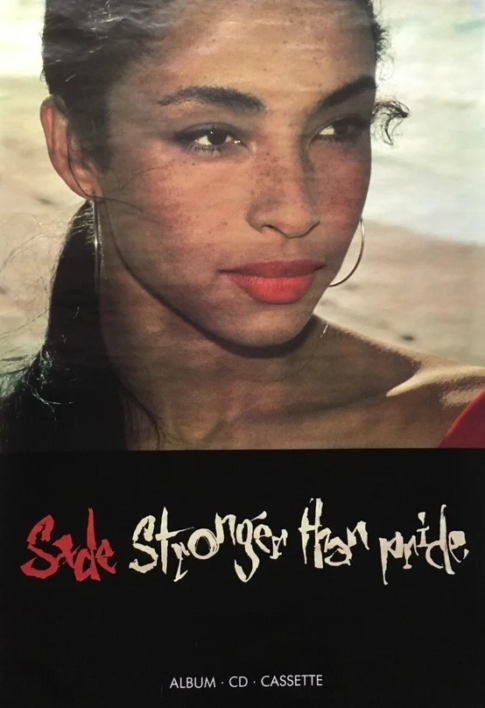
Take A Trip Down Memory Lane with “Stronger Than Pride!”









You must be logged in to post a comment.